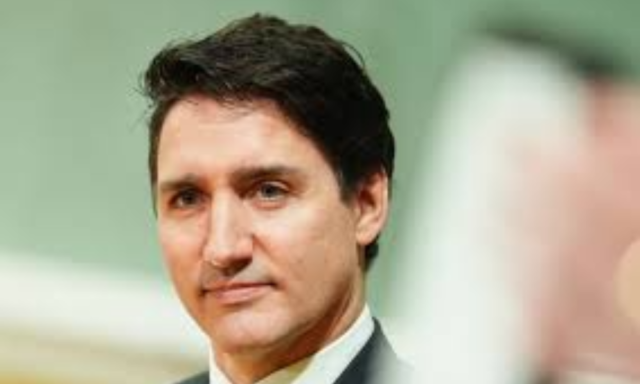Ottawa: Canadian Prime Minister Justin Trudeau has taken a significant step in addressing U.S. concerns as Canada appoints fentanyl tsar. This move comes as U.S. President Donald Trump continues to threaten tariffs on Canadian goods, raising fears of a potential trade war.
Canada’s New Fentanyl Tsar
Kevin Brosseau, a former member of the Royal Canadian Mounted Police and an intelligence adviser to Trudeau, has been assigned to lead Canada’s efforts in combating fentanyl trafficking. His appointment aims to strengthen Canada’s border security and cooperation with the United States.
According to Trudeau, this decision will help “detect, disrupt, and dismantle the fentanyl trade” while reinforcing Canada’s commitment to tackling cross-border drug smuggling.
Despite these efforts, reports indicate that less than 1% of fentanyl intercepted at the U.S. border originates from Canada. However, Trudeau’s administration insists that even a small amount is too much and must be addressed.
Trump’s Tariff Threats
The fentanyl tsar’s appointment comes as Canada faces growing trade tensions with the U.S. In February, Trump temporarily paused a 25% tariff on all Canadian imports for 30 days after reaching a deal with Trudeau. However, this reprieve may not last.
On Monday, Trump announced another potential tariff—this time targeting global steel and aluminum imports, set to take effect on March 12. If enforced, this move would severely impact Canada, the largest supplier of these materials to the U.S.
Speaking in Brussels after a meeting with EU leaders, Trudeau warned that such tariffs would also hurt American manufacturers and consumers. “Any thickening of the border, any tariffs on Canadian imports, will hurt American manufacturing and consumers, and we don’t want that,” he stated.
Canada’s Response to Tariffs
All 13 Canadian provincial and territorial leaders are currently in Washington, D.C., lobbying against the proposed tariffs. Ontario Premier Doug Ford stressed that their presence has been noticed in Washington. “Make no mistake about it, the president knows we’re here, knows we’re concerned,” he said.
Meanwhile, Canada’s finance minister is meeting with key U.S. officials, including Howard Lutnick, Trump’s nominee for Commerce Secretary, and Kevin Hassett, director of the National Economic Council, to negotiate a resolution.
Strengthening Border Security
To counteract illegal drug smuggling and organized crime, Canada is ramping up its border security efforts. The government has introduced:
- New Black Hawk helicopters
- Advanced drones for surveillance
- Nearly 10,000 additional border security personnel
- A C$200 million ($139 million) investment in intelligence and crime prevention
Impact on U.S.-Canada Relations
Since his return to the White House, Trump has engaged in trade standoffs with both Canada and Mexico. His 25% tariff threat on imports from these neighboring countries was delayed after both nations pledged to combat illegal migration and drug trafficking.
However, tensions remain high. Canada and Mexico are among the U.S.’s largest trading partners, alongside China. While Canada hopes to avoid a trade war, it has vowed to retaliate swiftly if tariffs are imposed.
What’s Next?
With trade negotiations ongoing, both nations are working to avoid an economic standoff. Canada’s commitment to tackling fentanyl smuggling is a key factor in the discussions. Meanwhile, businesses on both sides of the border are closely watching the situation, hoping for a resolution that maintains strong trade relations without harmful tariffs.
As negotiations continue, the impact of Trump’s tariff policies on North America’s economic stability remains uncertain.











